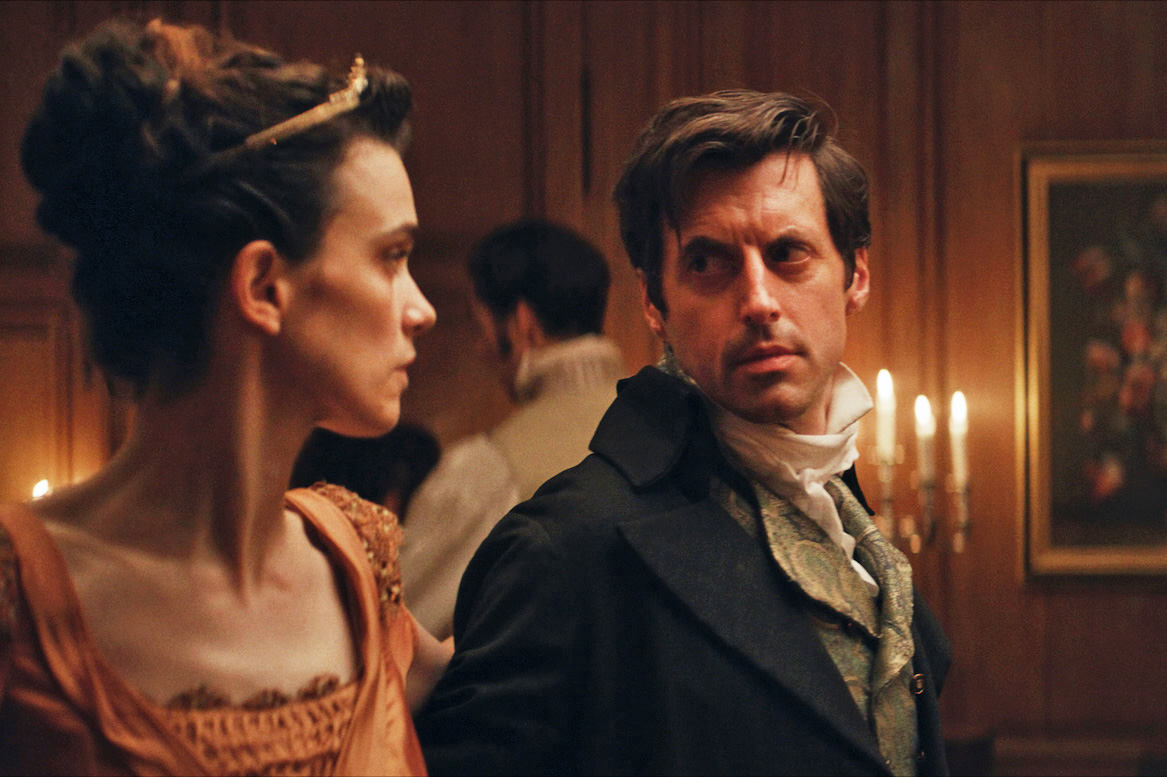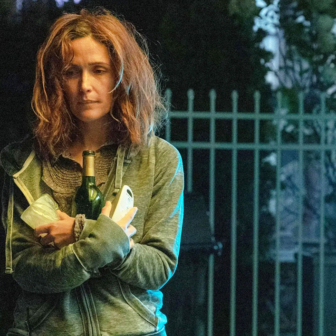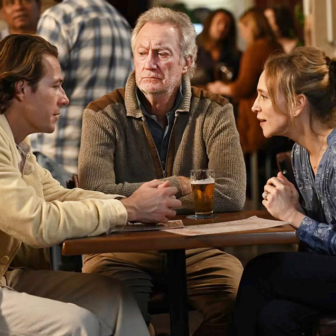Box-ticking is at the heart of Celine Song’s Materialists, now in cinemas. It’s the business model that drives its central character, Lucy (Dakota Johnson), who works for an upmarket New York matchmaking service called Adore.
There she sees people at their most calculating. Her clients have a tight shopping list of requirements for their ideal partner, and it’s all about money, status, age and appearance, and marriage is regarded as the summit of achievement. Lucy is beginning to feel a little frustrated by their demands, but she remains determined to deliver.
At the wedding of her latest success story, she meets the groom’s brother, Harry (Pedro Pascal), who is in the family’s private equity business. He is intrigued by her job and by her. At the same event, she runs into her ex, John (Chris Evans), who is working as a waiter. He appears from nowhere with her idiosyncratic drink order, a coke and a beer. John is unlikely to find a place in the Adore world: he’s still a struggling actor — he invites her to his new play — and he’s still living in the same apartment with a couple of roommates. She is nevertheless glad to see him again. Is there enough there for a second chance? Or does Harry simply have too much to offer?
Materialists embraces the form of the romantic comedy; it has a smooth and attractive surface and some neat gags and comic moments, and Johnson brings her characteristic combination of languor and edge to Lucy. At times it delivers sharp commentary on contemporary dating and its discontents, notably through a couple of montages of Adore’s most absurdly demanding clients. Lucy can also deliver some sardonic assessments. Yet she is in a contradictory position, maintaining a distance from the dating game but freely acknowledging that she has bought into the market model of romance.
To drive home her point, Song is prepared to put a price on certain defining elements: Lucy earns $80,000 a year; Harry’s apartment cost $12 million; the catalyst for the break-up with John was a $25 charge for parking. There is talk of “intangible assets” and being made to “feel valuable.”
Yet once the scene has been set and the classic romantic dilemma established — who and what will she choose? — the film falls slowly away. And Song’s streamlined scenario has glitches and gaps. None of the main characters seems to have a friend or to inhabit a social world. Sex isn’t on the Adore checklist, nor in Song’s depiction of the relationship between Lucy and Harry: she never really suggests that desire is part of the picture. A clever comic reveal resonates in an interesting, poignant way, but only briefly.
Most notably, there is a plot line that reflects a darker side of the Adore business model and dating in general. It feels contrived and heavy-handed, however, as if it is only there in the narrative for Lucy to react to and learn from.
The heroine of Jane Austen Wrecked My Life (in cinemas), the first feature from French writer-director Laura Piani, is also holding herself apart from the dating game, but for very different reasons.
Agathe (Camille Rutherford), an aspiring writer who works in a Paris bookshop, is an Austenite trying to live in the twenty-first century. We first meet her dancing around the shop to “Don’t You Feel Like Crying,” and the inspiration for her work-in-progress seems to be more In The Mood For Love than Persuasion. But she has reached an impasse in her emotional and creative life. Sex and romance have been off the table for several years, and she lacks confidence in her writing and in herself.
Her good friend and colleague Félix (Pablo Pauly) stages a kind of literary intervention, and sends early chapters she has written to a writers’ retreat in England: the Jane Austen Writers’ Residency, no less. She is offered a place, and he won’t let her say no. Just before her departure, she and Félix, an unrepentant womaniser — a Henry Crawford from Mansfield Park, according to Agathe — share a non-platonic kiss that marks something of a shift in their relationship.
The first person she meets in England is Oliver (Charlie Anson), son of the couple who run the retreat. It’s not an auspicious encounter. She is sick over his shoes almost immediately, and that’s before he tells her he thinks Austen is overrated. The residency is a slightly absurd location: matching floral decor in her bedroom, a full English breakfast each morning, llamas haunting the grounds and a ball at the end of the stay. Oliver’s mother (Liz Crowley) is a welcoming figure, but his father (Alan Fairbairn) is in the early stages of dementia, and can be erratic, to say the least. Oliver, melancholy and ubiquitous, clearly has Mr Darcy elements, but he’s a gloomier, more comic figure.
Rutherford gives Agathe an appealing mixture of passion and intensity, awkwardness and warmth that encompasses the slapstick aspects of the character but also her most heartfelt side. “I believe that some books become part of our lives. They enter our most intimate selves and some of them move in forever,” Agathe tells a sceptical fellow-resident. “They help us to live because they reveal to us our true nature.”
Above all, though, Jane Austen Wrecked My Life is a character study, light-hearted yet serious: the portrait of a woman coming to grips, on her own terms, with unresolved issues of grief and loss. And it’s about her writing life before it’s about her romantic life.
In framing the film, Piani makes good use of her connections. She worked at Shakespeare and Company, the legendary Paris bookshop, and she was able to shoot scenes there. She was also able to involve the great documentary filmmaker Frederick Wiseman, cast in a small but crucial role at the end of the movie, in a deft finale that takes Agathe back to where she started but at the same time a world away. •




